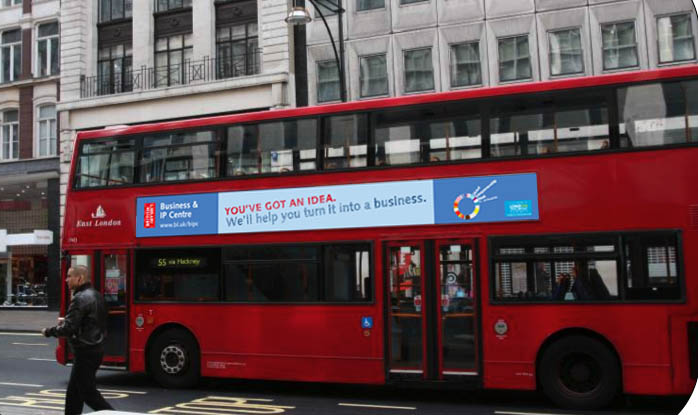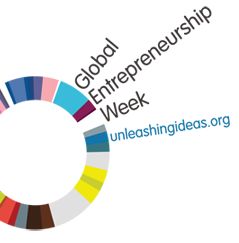 This morning I managed to find the time to attend a workshop by one of our partners. Lucidica are a relatively new partner for the Business & IP Centre and currently provide six workshops related to IT and business.
This morning I managed to find the time to attend a workshop by one of our partners. Lucidica are a relatively new partner for the Business & IP Centre and currently provide six workshops related to IT and business.
This particular half day workshop on what is a CRM (Customer Relationship Management), and when are they best used by small business, was presented by immensely knowledgeable founder and Chief Technology Officer (CTO) Thomas Jeffs.
He got straight down to business by explaining that a successful CRM implementation requires both staff discipline and management buy-in. With out both of these you will be wasting both your time and and your money.
Here are my notes from the morning:
What can a CRM system do?
1. Contact Management
- the most basic function of a CRM
- who they are
- what they are doing
- central point for all staff
Shared office address book – suppliers – customers – for many business this is just a piece of paper stuck onto a computer terminal
if people don’t use it and keep it up to date it become worthless
2. Sales Force Automation – now the most popular aspect of CRM – making sure you make the best use of your sales force
- What to do and when, with regards to sales and follow ups
- Helps make sure you chase opportunities when you need to
- Allows you to forecast your predicted sales and leads – only tends to work on larger scale of operation
- Allows you to see how your sales agents are doing
- Essentially automating your sales force and sales force reporting
- Benefits not so clear to staff due to reluctance to fill in details of customer interactions
3. Marketing Campaign Management – linked to previous activity
- How much did £100 in marketing spend raise in sales?
- How many leads did a marketing campaign generate?
- How many internal resources were required as a result of a marketing campaign? E.g. Did it attract the wrong kind of customer who were ‘high maintenance’?
4. Customer Service Management – support tickets – complaints – consistency across the Business & IP Centre
- A centralised place for tracking – breaks dependency on one member of staff
- Can provide automated responses to issues. E.g. generated ticket number and expected response from the company
- Can monitor and escalate issues if still outstanding
- Result in – consistency and efficiency of service
- Benefits clearly visible to staff and customers
It is important to establish which of the above are the most relevant to your business, as this will have an impact the the most suitable package for you.
How do CRM systems help your business?
1. How do they do it? – Automation
Health warning
– Automation to internal users is good
- Creation of follow-up tasks/ reminders
- Workflow tools
- Creation of templates, timelines and standards
– Automation to external users is mixed
- Acknowledgement of complaints/issues/feedback work well
- Automated quarterly sales email – don’t work so well – de-personalises the business.
2. How do they do it? – Tracking / Recording
– Change of address for existing clients
– Client moves to a new company
– Recording emails and phone contacts with sales leads
– Recording information that client is under contract with competitor for next three months
– Has your entire team access to this information
3. How do they do it? – Reporting
– Reporting is the purpose for a CRM for management
– Some things a CRM can tell you:
- Predicted sales for next three months
- Which clients haven’t been in contact for a while
- Which sales agents are getting the most leads
- Which sales agents are making the most sales
- Which contracts are up for renewal
- What total sales have you achieved from each marketing campaign
- Which clients have service level issues
- Which people work for which clients
Thomas reviewed several case studies based on real experiences at Lucidica.
Which CRM is right for you?
1. Which CRM? – Questions to ask
- What is the function of the CRM?
- What will it need to integrate with?
- Who will need to use it, and from where?
- What is the potential benefit for my business in £’s?
2. Which CRM? – Quick and dirty recommendations
– Excel – 1st choice for people thinking about what they need to track
– SharePoint – 1st choice for precision applications and power users
– Sage ACT! – 1st choice for integrating into Outloook and Sage, below 10 users, primary use for contact management and sales force automation
– SugarCRM – 1st choice for Linux users
– SalesForce.com – 1st choice for users with little infrastructure and who rely on internet traffic for business
– Goldmine – 1st choice for businesses with over 10 users but can’t afford Microsoft CRM
– Microsoft CRM – 1st choice for businesses with high volume of sales and contracts
Summary
– Make sure your CRM does not have superfluous functions
– Make sure it can scale both up and down
– Make sure you can get your data out of the system
– start small and evaluate after six months
Lucidica Technology Seminars
Search Engine Optimisation (SEO)
– how to improve your website so search engines, like Google, lists or ranks it better/higher.
Email Marketing
– how to use professional looking emails, in bulk, to market effectively, and/or keep your clients informed (e.g. newsletters).
Technology “Must-Have’s” For Small Businesses
– from the best computers and laptops, virus-protection and back-up software we know of; to “what is a server and when does my business need one” and many free software and technology tips to reduce technology risk and increase value in your business.
An Intranet and more with Microsoft Sharepoint
– touted as a big thing in the 1990s, Intranets are finally adding value to business – especially small business now they are affordable with products like Microsoft Sharepoint. In this seminar we explain what an Intranet is, how you can use Sharepoint and how to get this powerful solution from Microsoft for FREE. We’ll talk and show you how you can use Sharepoint for your own CRM, wiki, time sheeting forms and reporting, expense summary forms, other procedures and forms with built-in workflow and much, much more.
What is a CRM, when are they best used by small business and which one to select
– Client Relationship Management (CRM) software can bolster your relationship with existing clients as well as help you work on your prospective client contacts better and more frequently with ease. We’ll outline what a CRM, how it should be used for small business and profile the top 4 or 5 CRMs affordable to small business.
Designing, developing and maintaining an effective website
– every small business should have a website. Here we dispel many myths about designing, developing and maintaining a website – it’s really not that hard! For most websites we design and build for our clients we recommend they buy some great Adobe software which allows them to maintain their website like they edit Word documents. We provide plenty of advice and tips on what is a good design, and what your developers should be including in the code when they build it.
 Although this has to be one of the most culturally embarassing references I have used in this blog, I couldn’t resist – now that we are advertising on London buses (see my YouTube link below if you are in need of a cringefest).
Although this has to be one of the most culturally embarassing references I have used in this blog, I couldn’t resist – now that we are advertising on London buses (see my YouTube link below if you are in need of a cringefest).

 As part of our continuing experimination with all things
As part of our continuing experimination with all things 
 In just over a months time it will be
In just over a months time it will be  As I mentioned a while back (
As I mentioned a while back (

 Given the enthusiasm of my colleague Clare Harris who organised the event, I’m hoping this will be the first of many Meet the Mentor evenings.
Given the enthusiasm of my colleague Clare Harris who organised the event, I’m hoping this will be the first of many Meet the Mentor evenings.